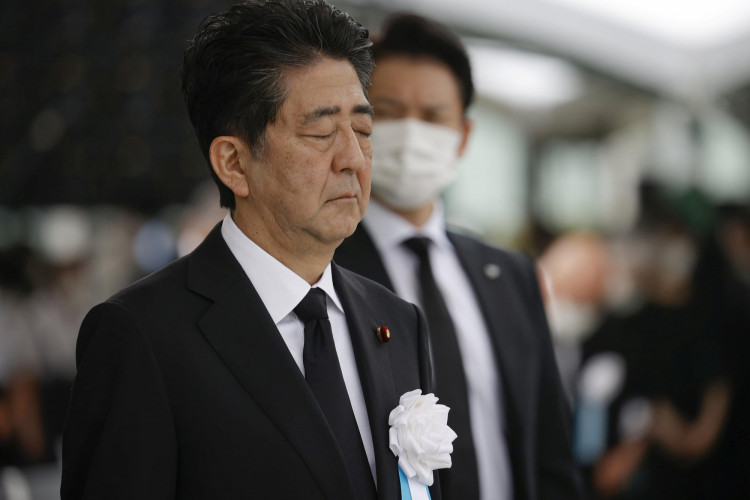After persistent reports he has been vomiting blood Japan's Prime Minister Shinzo Abe was admitted to a Tokyo hospital Monday for the second time in eight days for what aides said was a routine checkup.
It has been confirmed Abe's current condition is a result of extreme pain caused by recurring bouts of chronic ulcerative colitis - which was reported to have flared up in July.
Ulcerative colitis is a long-term disease that results in inflammation and ulcers of the colon and rectum. Primary symptoms of this disease are abdominal pain and diarrhea mixed with blood. Some patients vomit blood. The disease is rarely fatal.
Abe was rushed to Keio University Hospital in Tokyo on Monday. His recurring visits to the doctor are fueling increasing speculation among Japan's political elite that all is not well with Abe. Open talk of Abe's resignation within the next few weeks is increasingly being heard. There are rumors of a probable snap election and intensifying power struggles among candidates for Abe's job among contenders from his Liberal Democratic Party.
Japan political pundits speculated the flare-up was a result of exhaustion from Abe leading Japan's fight against COVID-19. Abe has also been dealing with the damage caused by destructive torrential rains that have hit many regions.
Earlier, government spokesman Yoshihide Suga sought to dismiss speculation over Abe's ill health. Suga did the same thing Aug. 3. "I see the prime minister every day and I think he has no (health) problems at all as he has been carrying out his duties smoothly," Suga said then.
Monday was historic for Abe. He became Japan's longest-serving prime minister in terms of consecutive tenure in office. Abe is now serving his third term as prime minister - the only politician to have done so. On Monday, Abe told reporters at his office his hospital visit was to collect results of his examination from last week. He also said he underwent an additional but unspecified checkup. Abe said he would give a fuller explanation of the results later.
Abe first became prime minister in September 2006 but had to resign a year later because of severe attacks from the disease. He successfully ran for office in 2012 claiming to have been healed by a new medicine.






